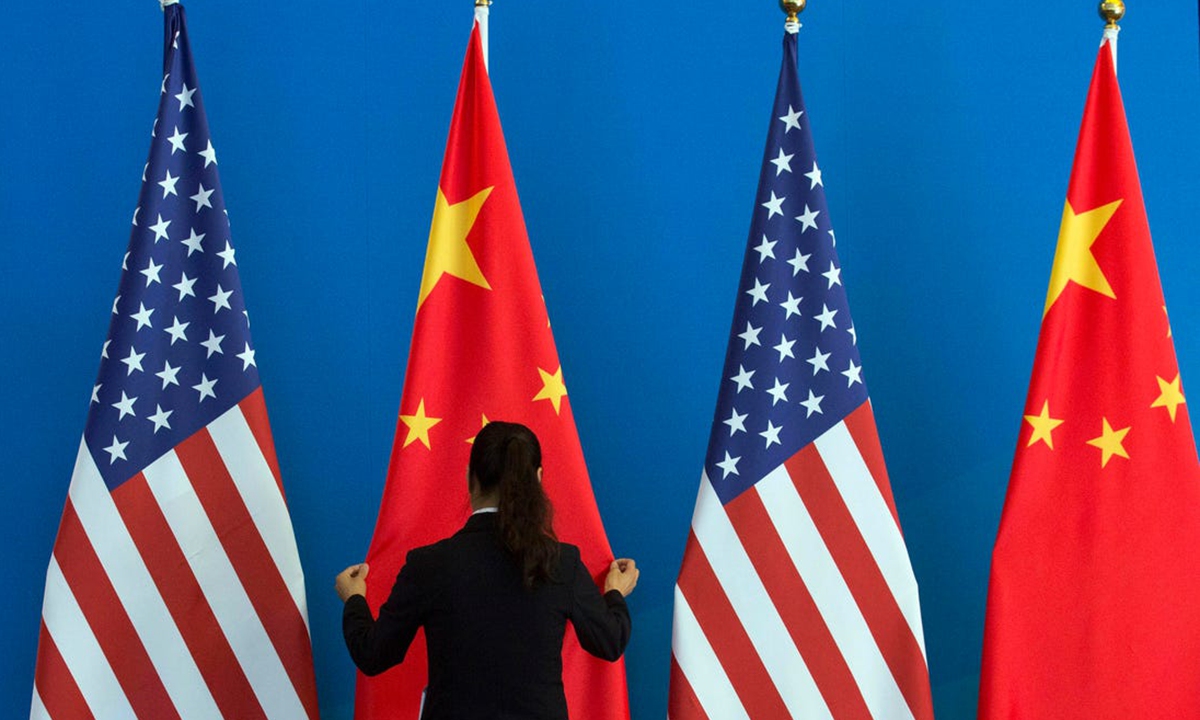
China US Photo:VCG
US companies' attendance at the 5th China International Import Expo (CIIE), the world's largest import trade fair to be held in Shanghai later this week, will continue to lead other delegations despite the geopolitical tensions, the US-China Business Council (USCBC) told the Global Times on Monday.
Despite global uncertainties and the volatile COVID-19 situation, the USCBC said "it's still business, though not as usual," confirming that US participation this year will be approximately the same as last year with some 200 companies attending, including 32 USCBC members.
Analysts said that large attendance by US companies at the CIIE, the first major trade expo held in China after the successful conclusion of the 20th National Congress of the Communist Party of China, showed that the US business community continues to trade and invest in China, which will be the world's largest consumer market in the years to come.
"As the largest delegation at the show, US companies are sending a message that they have confidence in the market, growth will continue, and government leaders will find ways to preserve the commercial side of the relationship and the millions of jobs in both countries that depend on it," the council said in an email statement to the Global Times.
This is a great venue for US companies to fill their order books for the year ahead, it added, noting that the range of USCBC companies attending the event is not much different from past years.
Gao Lingyun, an expert at the Chinese Academy of Social Sciences in Beijing, told the Global Times on Monday that the attendance showed US companies' "have voted with their feet" and this is "a fact that deserves more attention from US politicians."
Gao noted that due to a variety of factors, including tariffs placed on a wide range of Chinese goods, the contributing effect of China-US trade to China's overall foreign trade has dropped markedly in recent months, citing data monitored by his team.
The strong attendance by US companies comes as key sectors of China-US trade have encountered headwinds.
In an April report by the USCBC, agricultural goods, chips, oil and gas were the top three US exports to China. However, under the current global trade landscape, these items are subject to changes and implications brought by the global grain crisis, and US export controls on high-tech goods to China.
Gao noted that because of political manipulation, politicizing of trade matters and curbs placed on China-US trade by the US government, there's limited potential for signing more deals at the CIIE.
Sectors that contribute to the interests of both China and the US -- for instance, cooperation in the health sector, pharmaceuticals and modern services -- may be the new drivers of bilateral trade, Gao said. The US should immediately drop its export controls for the sake of China-US trade and economic cooperation and the benefits of US companies.
China-US trade rose by 8 percent in yuan terms in the first nine months of the year, data released by Chinese customs showed. Growth slowed from 11.8 percent in the January-July period and 10.1 percent in the January-August period.
US electric carmaker Tesla, which has one of its Gigafactories in Shanghai, is bringing, for the first time, all its models of electric cars to the show, the company said in a statement sent to the Global Times. It's also bringing its Tesla Bot humanoid, and the fact that the product became a reality in just six months demonstrated "Tesla's innovation and engineering capacity," the company said.
Boston Scientific, a leading global medical technology company, said in a statement sent to the Global Times on Monday that it is presenting three cutting-edge innovations at the 5th CIIE, including the Vercise Genus Deep Brain Stimulation System used for the treatment of Parkinson's disease, tremor and other movement disorders.
Amazon, which is coming to the CIIE for a second time, has doubled its floor space this year and brought its "innovative and flexible" cross-border logistics services covering sea, air and small parcels.
"Both governments have announced that they intend to cooperate where possible," the USCBC said, noting that its members support cooperation, especially in areas such as public health, climate change, green transportation and supply chains.
The USCBC is an advocacy organization representing more than 260 member companies that do business in China.




